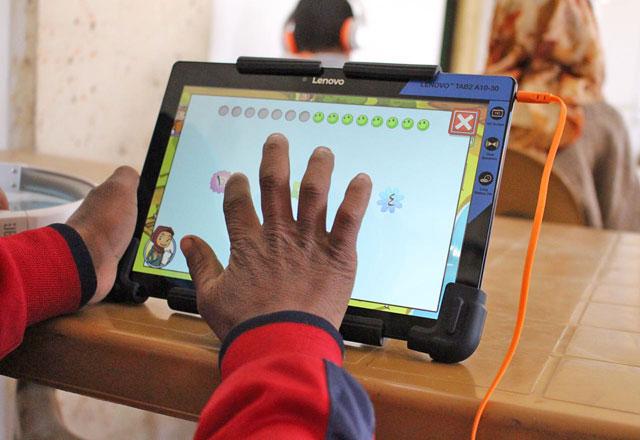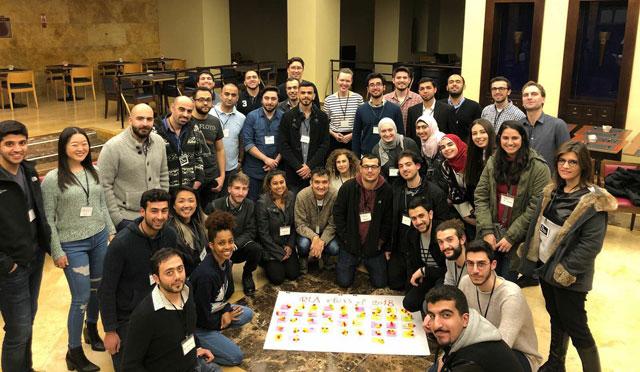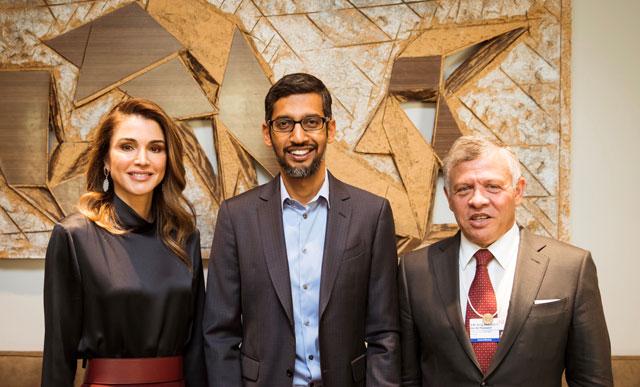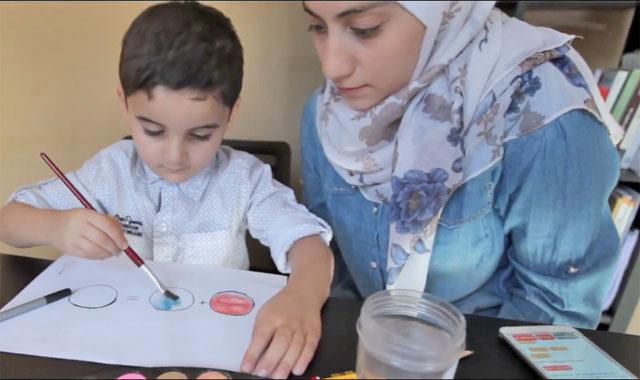You are here
Catching up on school by playing: game gives refugee children chance to regain lost academic years
By Camille Dupire - May 08,2018 - Last updated at May 08,2018

‘Can’t Wait to Learn’ designed and led by the NGO War Child to offer easy and understandable educative games to young refugee learners (Photo courtesy of War Child)
AMMAN — A game co-designed by children, education specialists and Ministry of Education (MoE) officials is testing a new approach aimed at helping refugee children catch up on the academic years they lost due to displacement and regional turmoil.
"Can’t Wait to Learn" [CWTL] was designed and led by the NGO War Child (WC) with the aim of offering easy and understandable educative games to young refugee learners, according to WC country director, Patrick Sweeting, who noted that the game is "fully aligned with Jordan's national curriculum".
"WC Jordan has been developing this game based on national standards and in line with the best international practices in the field so as to create a learning tool that can later be scaled up to larger groups of learners," he told The Jordan Times in a recent interview.
"Some of the kids who found refuge in Jordan have been out of school for several years, and are sometimes way behind in terms of academic knowledge for their age," noted Ziad Twissi, WC education technical adviser, adding that "therefore, we needed to find a way to condense a year worth of learning of specific subjects into a short amount of time to help these children catch up".
Along with officials from the MoE and designers from WC, he customised an interactive learning game to adapt Jordan's national curricula materials to a condensed learning pattern, with reduced literacy and numeracy items and increased playing tools to enhance students' engagement.
"Some of these children have been deeply affected by the regional crisis and are still suffering from many psycho-social consequences. Thus, we need to pay extra attention to their well being if we want to create a sustainable educational impact for these kids," the education expert said, stressing that "many drop-outs recorded among these groups are due to the lack of an enjoyable learning environment, combined with financial factors, which push the kids more easily into the traps of child labour or child marriages".
The strength of CWTL, according to Sweeting, is its child centred design which took into account all parties involved in the young learners' lives. "Our designers co-created the game with local children, ministry officials and local communities. We had kids tell us which characters they wished to see in the game and the environment they wanted to see those characters evolved in, among other things," he explained, referring to the custom-made Jordanian game that includes backgrounds such as Wadi Rum, Petra, and other known locations.
"This game is truly research informed, which means that it was designed to fit the specific needs of the students' lifestyle and circumstances, therefore becoming highly attractive to both boys and girls learners," said Hussein Al Amoudi, WC communications officer, stressing that "even children who have never learned to read or write can learn with this game".
Provided with a tablet at the start of each CWTL class, students are in full control, having to make decision at each stage of the game. "They cannot access the next level until they fully acquire the skill they need to learn; this is a formative assessment of their progress which is very challenging yet rewarding for them," said Twissi, recalling a "complete silence" in the room once the 45-minute session starts.
The programme is currently piloted in Azraq refugee camp and host communities in Zarqa, along with NGOs which are trained on conducting the game independently in Makani centres.
"At first, some teachers were reluctant, because it is a new technology they are not used to," recalled Twissi. "But, after a week of training, they started mastering the game and enjoyed playing it as much as the children themselves!," he remembered.
CWTL works to support and supplement the traditional education model in conflict-affected areas for a short term as it enables vulnerable children in both formal and informal learning environments to work towards acquiring MoE competency levels, thus moving towards an eased transition into formal education systems, a CWTL statement said.
The organisation is now waiting for the results of the research studies measuring the learning outcomes, psychosocial effects and overall effectiveness of CWTL compared to other traditional approaches. "These results, which should be published early next year, will inform future development of the curriculum and help up progress to the next scale-up phase in the whole region," said Sweeting, stressing the importance of "making sure that all aspects of the game are fully supervised and under control before we decide to expand any further."
Related Articles
AMMAN — A mobile app aimed at bringing together refugee children and volunteers across the globe to share bedtime stories was featured on Fr
AMMAN — Her Majesty Queen Rania on Wednesday announced the launch of a new learning platform catering to school-aged children across the Ara
AMMAN — At a time when most of the national attention is focused on the impact of formal education on children's development, no one really


















